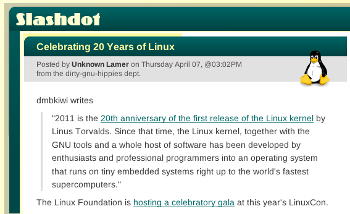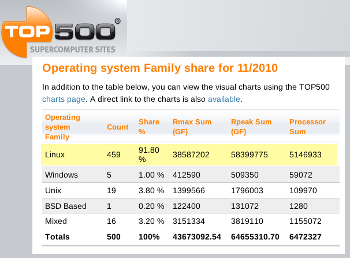 headline.
headline.The contribution of the GNU toolset should not be minimized, especially its C compiler, because without a compiler, source code projects are mostly academic exercises. The overall synergy of the two projects was magnified further because both employed the same free software license, the GPL. That license enables others to build upon existing work. That broke the cycle of having to reinvent the wheel over and over again, or else pay someone for every single installation. With this solid foundation in place, the stage was set for the rise of the free software movement. This was good timing- it was just in time for GNU/Linux to play a major role in the rise of the nascent internet. Free software, open source software, and other permissive licenses fueled the movement that allowed servers to be setup with software that would otherwise have cost thousands of dollars. Free software forms the basis for very usable software platforms, as typified by LAMP. GNU/Linux lies at the heart of Web 1.0,Web 2.0, and beyond.
GNU/Linux has proven itself on the server side, and is widely deployed (examples: Google, the New York Stock Exchange, and high performance computing installations.) I hadn't realized the extent to which Linux dominates high performance computing. Check this recent
 tabulation.
tabulation.Unfortunately, GNU/Linux has not fared as well on users' desktops. The overall usage percentage of GNU/Linux remains small even though a rich set of software has been developed for it, and for use at no charge. As tight as budgets are right now, it seems that it should be getting more attention. It looks like people would rather continue to pay more than have to learn something new. Schools and governments should consider their long term savings by getting off the never ending upgrade train of commercial software, and own their own home, instead of continuing to rent.
No comments:
Post a Comment